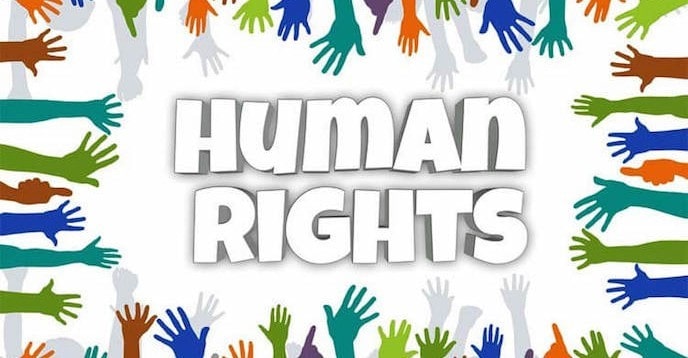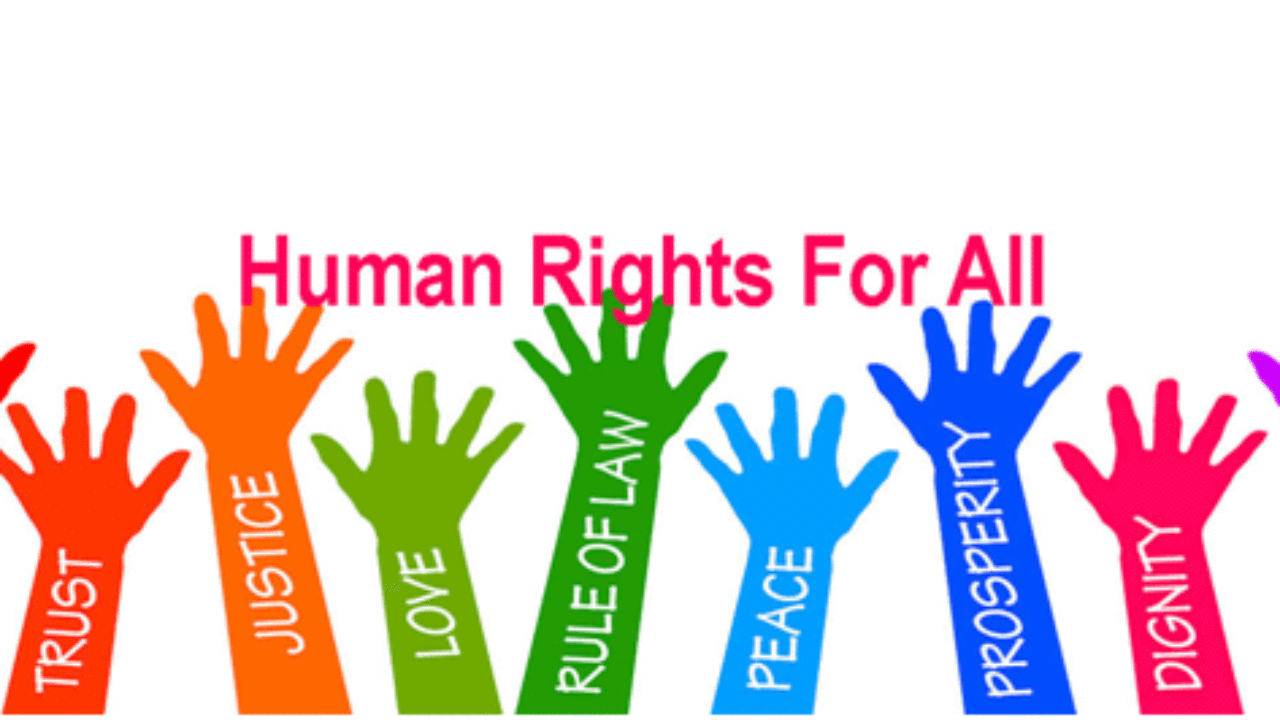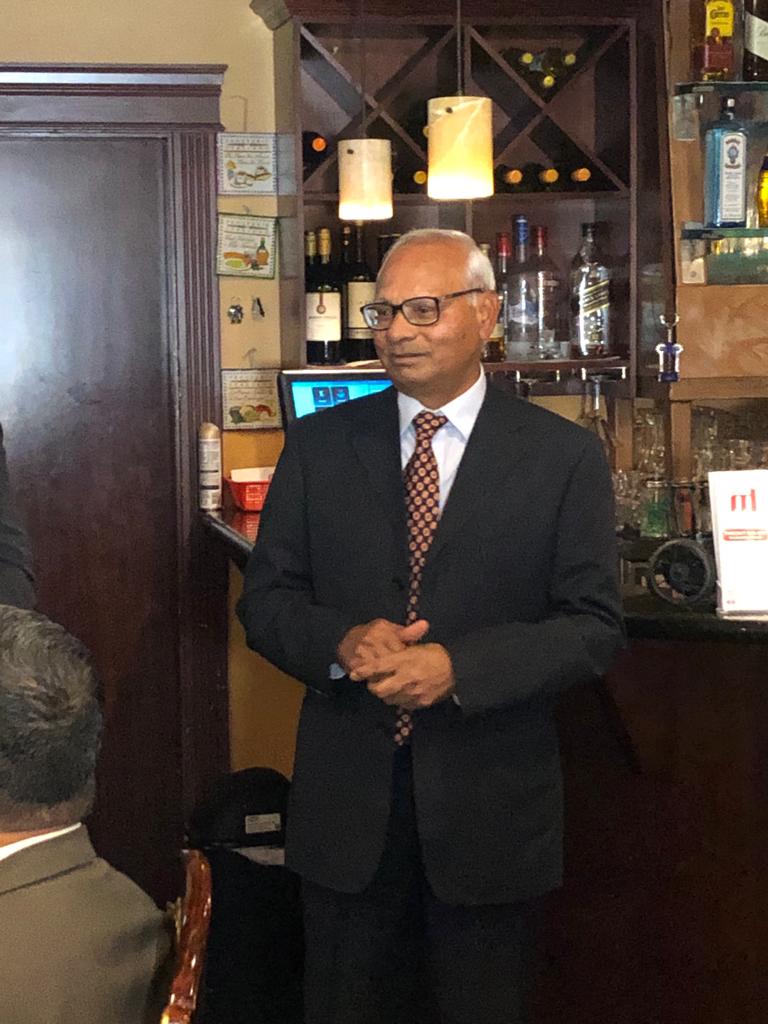DESIBUZZCanada
Events Listings
Dummy Post

International Day Of Yoga To Be Virtually Celebrated Saturday At 4pm

CANCELLED: Coronavirus Fears Kills Surrey’s Vaisakhi Day Parade

ADVERTISE WITH US: DESIBUZZCanada Is The Most Read South Asian Publication Online

SURREY LIBRARIES: Get Technology Help At Surrey Libraries

WALLY OPPAL: Surrey Police Transition Update On Feb. 26

GONE ARE THE DAYS - Feature Documentary Trailer

Technology Help At Surrey Libraries

Birding Walks

Plea Poetry/short Story : Youth Contest

International Folk Dancing Drop-in Sessions
CELEBRATING HUMAN RIGHTS: It’s Our Fundamental Right And Should Be Protected
- October 28, 2020

By ZILE SINGH
October 24, United Nations and Human Rights Day
The year 2020 marks the 75th anniversary of the United Nations. The Charter of the United Nations Organisation (UNO) was signed in San Francisco on June 26, 1945, by the representatives of the 50 countries. Poland, which was not represented at the Conference, signed it later and became one of the 51 Member States. The UN came into existence on October 24, 1945, upon ratification of its Charter by twenty-nine of its signatories including the five permanent members of the Security Council (China, France, Russia (former USSR), the United Kingdom and the United States of America. It is to be noted that name of the Organisation “United Nations” was taken from the Declaration of the United Nations and adopted in tribute to the memory of Franklin Delano Roosevelt , President of the United States of America at that time. He suggested the name. In 1971 the UN General Assembly recommended that the day be observed by the Member States as a public holiday.

On September 21, 2020, a high-level event was held when the Member States reaffirmed and recognized that our challenges are interconnected and can only be addressed through reinvigorated cooperation, multilateralism and global solidarity. “The 75th anniversary of the UN falls in the middle of a global pandemic. Our founding mission is more critical than ever. On this anniversary, I ask people everywhere to join together. The United Nations not only stands with you… The United Nations belongs to you and is you: “we the peoples.” is the message of Mr. Antonio Guterres, Secretary-General of the UN. The United Nations World Food Programme (WFP) has been awarded the 2020 Nobel Peace Prize. WFP is the largest humanitarian organization in the world. The World Health Organization, one of the agencies of the UN has played a significant role during COVID-19.
The Preamble of the U.N. Charter has set forth the basic aims which are : (i) to save succeeding generations from the scourge of war, (ii) to reaffirm faith in the fundamental human rights, (iii) to establish justice and respect for international obligations, and (iv) to promote social progress and a better standard of life. The Preamble also affirms that in order to achieve these aims the members of the United Nations are determined to practice tolerance, to live in peace and harmony, to maintain peace and security, to ensure that armed forces shall not be used except in the common interest and to employ international machinery for the social and economic betterment of its people. The other achievements of the United Nations are: Avoidance of the Third World War, Decolonisation, Universalism, Conclusion of International Conventions and Treaties, Economic, Social and Cultural Development, Respect for International Law, Nobel Peace Prize to the United Nations and its Organisations and Individuals and Reforms in the UN Charter.
At present, the total number of members of the UN has gone up to 193. South Sudan, the 193rd member was admitted in 2011. Vatican City (Holy See) and Palestine are not members but have permanent observers status. Every country, big or small; developed, developing or under-developed of the United Nations has only one vote in making a decision. India and Canada signed the Charter on June 26, 1945 and deposited their Instruments of Ratification on October 30 and November 9, 1945 respectively.
Promotion and Protection of Human Rights and fundamental freedoms have attracted the UN attention ever since its inception. The Universal Declaration of Human Rights also was adopted on October 24, 1948. Subsequently, the two International Covenants on Civil and Political Rights and the International Covenant on Economic, Social and Cultural Rights have not only set the standards for the treatment of human beings by their States, but it has universalised the Human Rights.

It is the United Nations which has led the States to accept, through the recognition of human rights, the fact that the States are meant for the service of the human beings. It also adopted an Optional Protocol to the International Covenant on Civil and Political Rights in December 1989 aiming at Abolition of Death Penalty which came into effect in July 1991. The General Assembly in 2008 also adopted another Optional Protocol to the International Covenant on Economic, Social and Cultural Rights which came into force in May 2013. With the adoption of the two Covenants and the Optional Protocols, the United Nations completed the task of formulating international standards of human rights of the individuals.
The meaning of Human Rights is that all human beings are rational beings. They, by virtue of their being human possess certain basic and inalienable rights which are commonly known as human rights. Since these rights belong to them because of their very existence, they become operative with their birth. Thus, human rights being the birth rights are therefore, inherent in all individuals irrespective of their caste, creed, religion, race, sex and nationality. These rights are essential for all individuals as they are consonant with their freedoms and dignity and are conducive to physical, moral, social and spiritual welfare. The human rights are also necessary as they provide suitable conditions for the material and moral upliftment of the people. Because of their immense significance to human beings, human rights are also sometimes referred to as fundamental rights, basic rights, inherent rights, natural rights and birthrights. A vast majority of legal scholars and philosophers agree that every human being is entitled to some basic rights. Thus there is a universal acceptance of human rights in principle in domestic and international planes. Human Rights is a generic term and it embraces civil rights, civil liberties and social, economic and cultural rights. It is therefore difficult to give a precise definition of the term ‘human rights’. The idea of human rights is bound up with the idea of human dignity. The former Chief Justice of India, J.S. Verma, the first Chairman of the National Commission for Human Rights rightly observed that ‘human dignity is the quintessence of human rights.’

Zile Singh is a well respected Columnist, Writer, a Vipassana Meditator and has a Post-Graduate Diploma in Human Rights. He can be reached at zsnirwal@yahoo.ca











